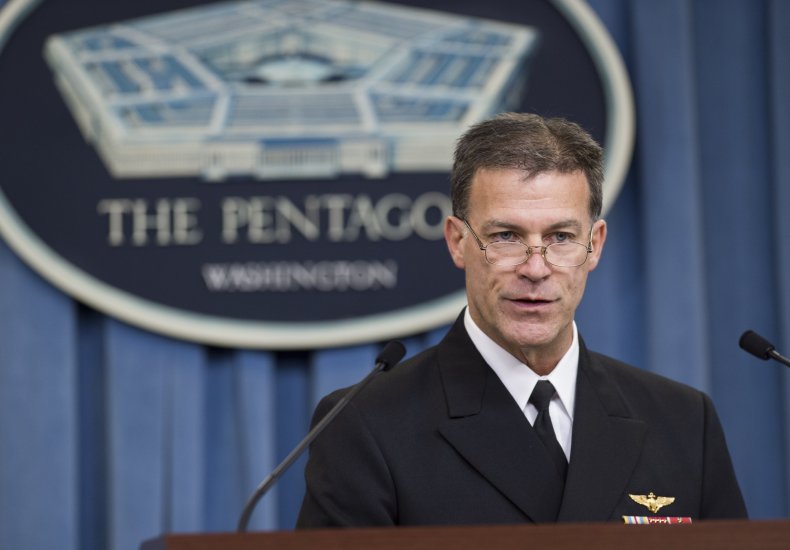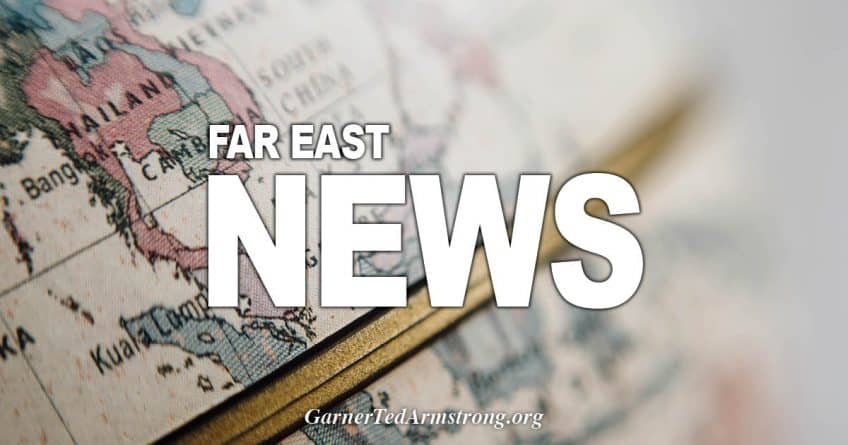A successful takeover of Taiwan by the Chinese military would harm U.S. credibility among allies in Asia, Biden’s choice to lead American forces in the Pacific said on Tuesday.
At a nomination hearing in front of the Senate Armed Services Committee, Admiral John Aquilino said capturing Taiwan is China’s “number-one priority,” and that the prospect is “much closer to us” than most believe.
Aquilino, who currently heads the U.S. Pacific Fleet, awaits Senate confirmation as President Joe Biden‘s pick to lead U.S. Indo-Pacific Command. It operates in “the most consequential region for America’s future,” the top Navy official said.
The Chinese government claims sovereignty over democratic Taiwan and has refused to rule out the use of force in its ultimate goal of bringing Taipei under its control.
China views Taiwan’s location as being of strategic significance, Aquilino told the committee. A successful invasion and occupation of the main island would threaten two-thirds of global trade passing through the area and also extend the Chinese military’s reach into the Indo-Pacific, he added.
According to Aquilino’s assessment, a second concern was the reputation of the U.S. as a stabilizing force in Asia, home of American defense treaty allies including Japan, South Korea, and the Philippines.
“The status of the United States as a partner with our allies and partners also is at stake should we have a conflict in Taiwan,” he told Arkansas Republican Senator Tom Cotton.
“It certainly would impact the credibility of the United States as a partner in the region,” Aquilino said of a seizure of Taiwan by Chinese forces, without any U.S. intervention.
Aquilino’s analysis differed in some respects from that of Admiral Philip Davidson, the outgoing commander of Pacific forces, who earlier this month told the same committee that China could invade Taiwan before the end of the decade—even “in the next six years.”
Davidson’s likely replacement noted that there existed a number of assessments surrounding the timeline of a hypothetical Chinese attack on Taiwan.
“My opinion is this problem is much closer to us than most think,” said Aquilino, adding that deterrence measures such as the $27 billion Pacific Deterrence Initiative (PDI) needed to be taken “in the near term and with urgency.”
He told senators that China’s potential use of force against Taiwan was “the most dangerous concern” for American troops stationed in the region, where other threats include North Korea.
However, Admiral Aquilino said a combined allied contingent of “capable, lethal forces west of the dateline” would create the required deterrence against any Chinese aggression targeting the island nation, which considers good relations with the U.S. critical to its continued survival as a democracy.
The Chinese military is “closing the gap” with the U.S. and plans to counter any potential American involvement in a Taiwan Strait contingency using so-called anti-access and area denial capabilities, said the Navy official.
It is, therefore, necessary that the U.S. maintains a persistent presence in the Western Pacific, where he believes credible conventional deterrents remain the best way to “avoid crisis or conflict” in the region, Aquilino told Elizabeth Warren, the Democratic senator from Massachusetts.
The Pacific Fleet commander received overwhelming support from senators on the committee and is expected to achieve the necessary votes to succeed Davidson.
The Taiwanese government, which has faced unprecedented pressure from the Chinese military in recent years, has insisted that national defense is the responsibility and obligation of its own citizens.
Last week, lawmakers in Taipei quizzed Defense Minister Chiu Kuo-cheng about Admiral Davidson’s remarks regarding an imminent Chinese invasion.
He told legislators with the Foreign Affairs and National Defense Committee that Taiwan would fight as long as it took to repel an attack, which he believed China was already capable of launching.
“In my judgment, we cannot set a timeline for an attack at six months or six years. My goal is to be ready at all times,” he told the committee.
He continued: “To be frank, China is capable of attacking Taiwan. Whether or not it is able to occupy Taiwan afterward, I won’t speculate. China can launch an attack, but its considerations will have to go beyond winning the first fight.
“I always tell my peers to stop asking how many days we need to hold out. The question is how many days does [China] want to fight? We’ll keep them company for as many days as they want to fight.”
This week, the Taiwanese foreign ministry expressed its gratitude to the United States and Japan following unconfirmed reports out of Tokyo that Japan was considering joining U.S. forces in the defense of Taiwan in the event of an attack by China.
Defense Secretary Lloyd Austin and his Japanese counterpart, Nobuo Kishi, mentioned peace in the Taiwan Strait as a joint priority following last week’s “2+2” meetings in Tokyo.

File photo: Admiral John Aquilino, current head of the U.S. Pacific Fleet. Aquilino has been nominated by President Joe Biden to lead U.S. Indo-Pacific Command.SAUL LOEB/AFP VIA GETTY IMAGES
[Disclaimer]









